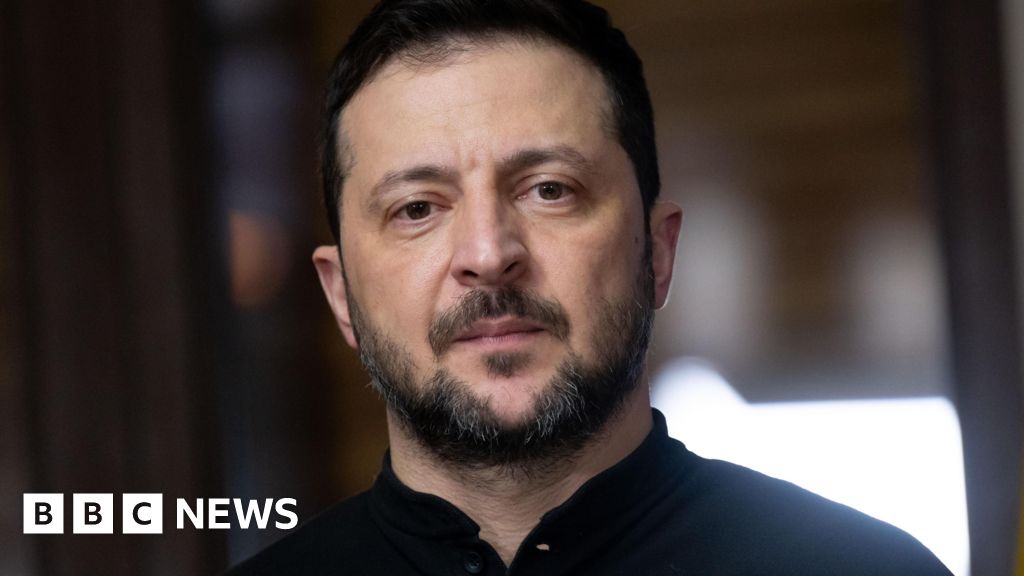

Ukraine’s President, Volodymyr Zelensky, has emphasized the urgent need for a “European army” to counter potential threats from Russia, expressing concern that the United States may not always be available to assist Europe. This statement was made during his address at the Munich Security Conference, where he also asserted that Ukraine would not accept any agreements made without its participation, alluding to recent peace talks initiated between former US President Donald Trump and Russian President Vladimir Putin.
In a powerful speech delivered on Friday, Zelensky criticized the current state of European democracies and echoed the sentiments of US Vice President JD Vance, who called for a stronger European defense posture. Vance’s remarks underscored the shifting dynamics in transatlantic relations, suggesting that Europe must adapt to a new reality where American support may not be as reliable as in the past. “I truly believe the time has come for the establishment of an armed force for Europe,” Zelensky declared.
Zelensky pointed out that during the conference, Vance highlighted the end of an era characterized by a steadfast alliance between Europe and the U.S., emphasizing the need for Europe to realign itself accordingly. US Defense Secretary Pete Hegseth recently described Russia’s extensive invasion of Ukraine as a pivotal moment for NATO, suggesting that the alliance must become “robust,” “strong,” and “relevant.”
On Saturday, Zelensky candidly remarked that it is now conceivable for the U.S. to refuse support for Europe in critical situations. He noted that many leaders have discussed the necessity for a dedicated European military force. The idea of a European army is not new; it has been championed by various leaders, including French President Emmanuel Macron, who has advocated for a military framework that lessens Europe’s dependency on U.S. support.
Reflecting on his recent conversations with President Trump about his discussions with Putin, Zelensky expressed concern that Trump did not emphasize the importance of having Europe included in negotiations, saying, “That speaks volumes. The old paradigm in which America supported Europe without question is no longer valid.”
As the war in Ukraine approaches its three-year mark, both Trump and Hegseth have indicated slim chances for Ukraine’s NATO membership, while Hegseth also deemed a return to Ukraine’s pre-2014 borders unrealistic. Nevertheless, Zelensky remains open to the possibility of pursuing NATO membership for Ukraine.
In a phone call last week, Trump spoke with Putin about potential peace negotiations concerning Ukraine, seemingly excluding essential allies from the dialogue. Zelensky insisted that Ukraine, along with Europe, must be involved in discussions affecting their future. Following this, the U.S. president indicated plans for a meeting with Putin in Saudi Arabia and shared on social media that both leaders had extended invitations to visit each other’s capitals.
Zelensky criticized Putin for attempting to isolate the U.S. through direct negotiations, describing such efforts as a manipulative “game.” “Next, Putin will aim to present the U.S. president on Red Square during the Victory Day celebrations on May 9, not as an esteemed leader but as a mere prop in his performance,” he warned.
Currently, no specific date has been announced for Trump’s visit to Moscow, coinciding with Russia’s commemoration of Victory Day, which celebrates its victory over Nazi Germany in 1945. In comments regarding Ukraine’s role in negotiations, Kremlin spokesperson Dmitry Peskov stated that Kyiv will invariably participate in the discussions. German Chancellor Olaf Scholz confirmed that Germany would never endorse a peace dictated by others, while Polish Prime Minister Donald Tusk asserted that Europe requires its own strategic plan for Ukraine to prevent other global powers from dictating its future.








